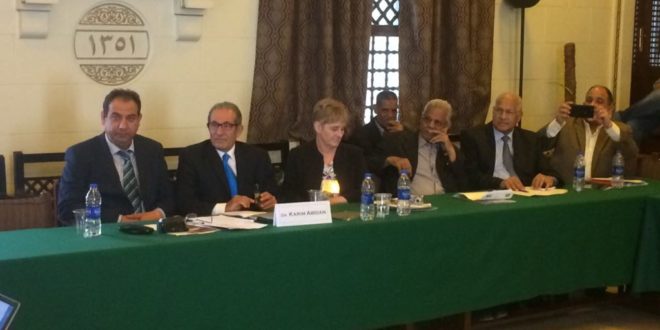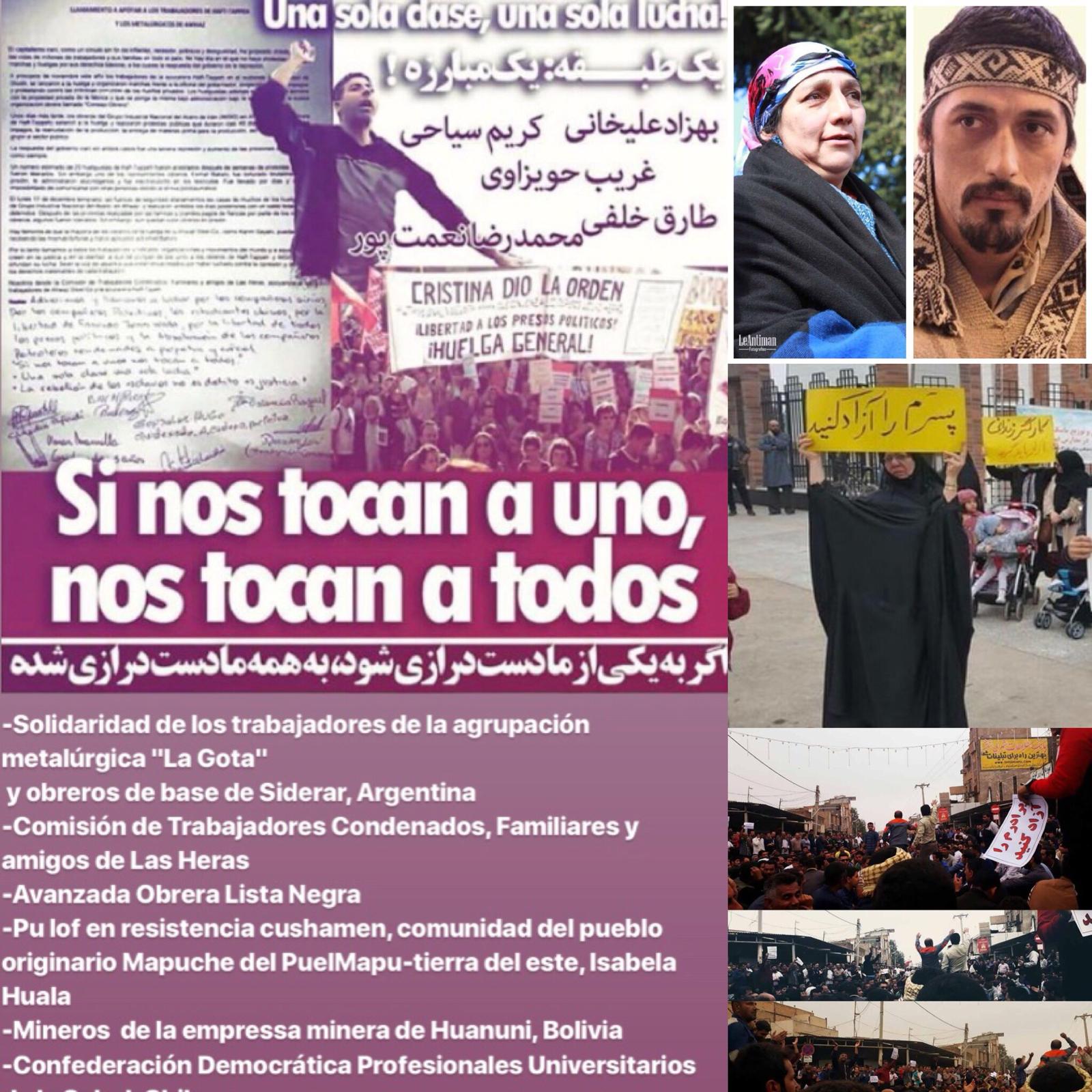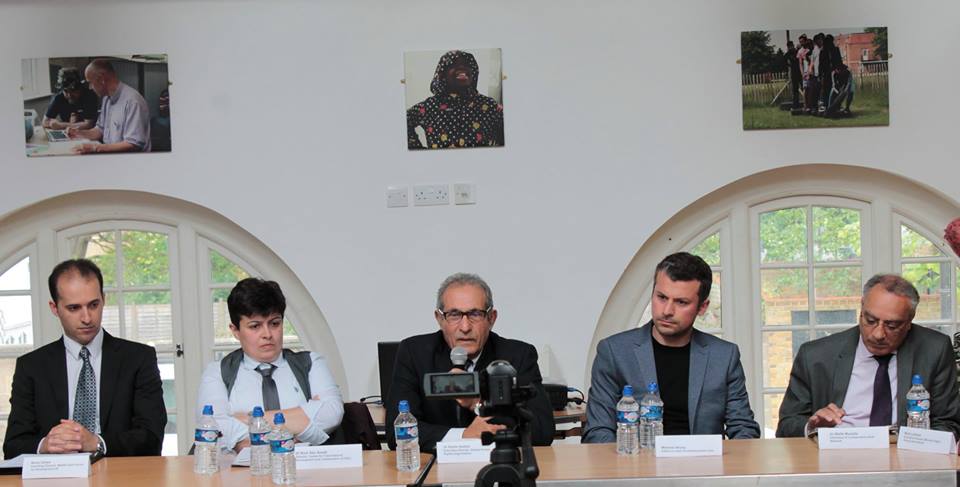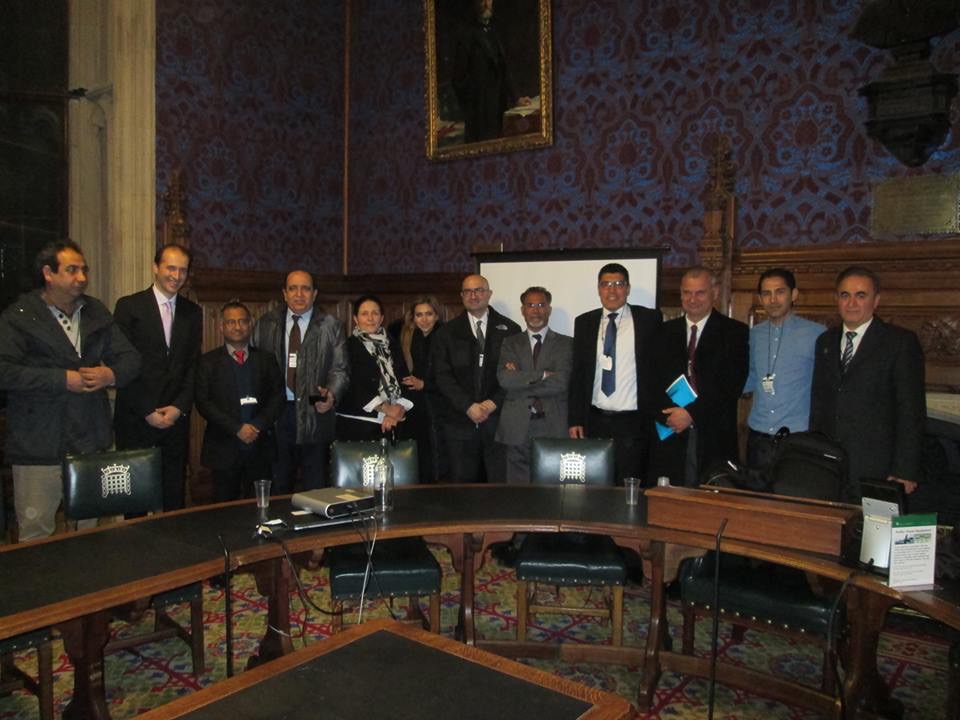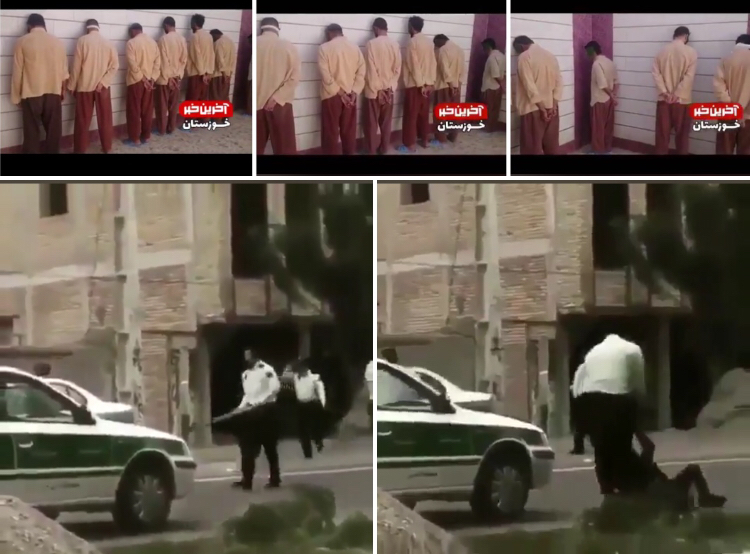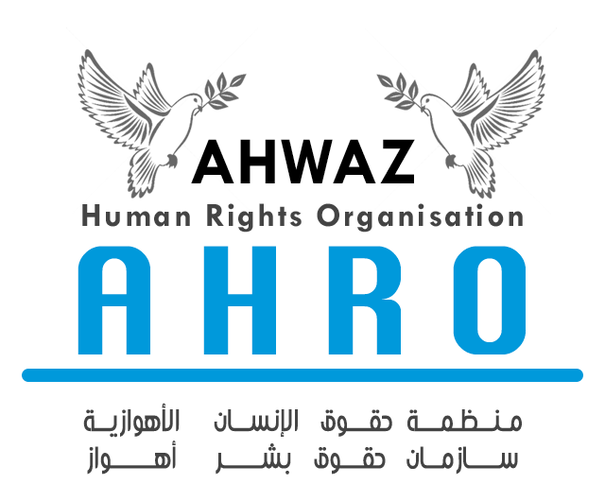- Details
- News
On April 24th, 2017 Executive Director of Ahwaz Human Rights Organisation (AHRO) participated in a conference titled “Managing Middle East Diversity: the Modalities” hosted by AUC forum (American University of Cairo)
The conference was held at the Middle East Forum of the American University where the situation in the Middle East in the light of Arab Spring was at the center of discussion .
The current situation in Iraq, Syria and Yemen and the peaceful alternatives available to address the rights of ethnicities living in Middle Eastern countries was debated during a two day period from 23-24th April in Cairo .
Speakers included , professors, researchers , directors of study centres and representatives of ethnic groups from Middle Eastern countries . Representative of Ahwazi Arabs, Amazigh , Yezidis , ethnic groups of Sudan shared their experience and expertise with the attendance .
The conference was also attended by delegates from various countries of the region including Egypt, Sudan , Tunisia, Lebanon, Turkey, Yemen and Ahwaz .
In the panel “national diversity in Iran “ ,Dr. Karim Abdian, Executive Director of Ahwaz Human Rights Organization presented a study “internal Self-Determination as a crisis management tool in resolving ethnic conflicts “.
Abdian presented Iran as a model of a multi-ethnic state , and suggested peaceful approaches to resolve the conflict of ethnicities , according to which indigenous, native population constituting the majority in their own regions , run their internal affairs without the interference of the central government ,this can be obtained through internal self determination.
In this study Abdian underlined the suppression the Iranian government exercises against different non-Persian ethnicities especially Arabs in Ahwaz such as ban on education in mother tongue , lack of political and administrative representation on both local and national level , extrajudicial execution , demographic changes , wide spread poverty among indigenous population despite the wealth of the region etc.
The study presented a peaceful solution for the problem of ethnicities in Iran.
It is expected that the recommendations in this conference be presented to the relevant decision making levels .
AHRO 24 April 2017
The conference was held at the Middle East Forum of the American University where the situation in the Middle East in the light of Arab Spring was at the center of discussion .
The current situation in Iraq, Syria and Yemen and the peaceful alternatives available to address the rights of ethnicities living in Middle Eastern countries was debated during a two day period from 23-24th April in Cairo .
Speakers included , professors, researchers , directors of study centres and representatives of ethnic groups from Middle Eastern countries . Representative of Ahwazi Arabs, Amazigh , Yezidis , ethnic groups of Sudan shared their experience and expertise with the attendance .
The conference was also attended by delegates from various countries of the region including Egypt, Sudan , Tunisia, Lebanon, Turkey, Yemen and Ahwaz .
In the panel “national diversity in Iran “ ,Dr. Karim Abdian, Executive Director of Ahwaz Human Rights Organization presented a study “internal Self-Determination as a crisis management tool in resolving ethnic conflicts “.
Abdian presented Iran as a model of a multi-ethnic state , and suggested peaceful approaches to resolve the conflict of ethnicities , according to which indigenous, native population constituting the majority in their own regions , run their internal affairs without the interference of the central government ,this can be obtained through internal self determination.
In this study Abdian underlined the suppression the Iranian government exercises against different non-Persian ethnicities especially Arabs in Ahwaz such as ban on education in mother tongue , lack of political and administrative representation on both local and national level , extrajudicial execution , demographic changes , wide spread poverty among indigenous population despite the wealth of the region etc.
The study presented a peaceful solution for the problem of ethnicities in Iran.
It is expected that the recommendations in this conference be presented to the relevant decision making levels .
AHRO 24 April 2017
- Details
- News
International Coalition Against Enforced Disappearances in Iran
(ICARDI)
Coalition Definition:
It is an international coalition base in London/ United Kingdom
consisting of number of organizations and lawyers to address the issue of enforced disappearance in Iran.
Board of Directors consists of seven members، Dr. Karim Abdian / General Adviser, Ms. Mona Silawi / president, Mr. Faisal Fulad/ General Coordinator
Read more ...
(ICARDI)
Coalition Definition:
It is an international coalition base in London/ United Kingdom
consisting of number of organizations and lawyers to address the issue of enforced disappearance in Iran.
Board of Directors consists of seven members، Dr. Karim Abdian / General Adviser, Ms. Mona Silawi / president, Mr. Faisal Fulad/ General Coordinator
- Details
- News
The Union of steelworkers at Arcelor Mittal (La Gota) of Villa Constitution Argentina expanded their international call for support of Ahwaz steel and Haft-tappeh sugar workers.
La Gota contacted various workers' organizations and non-governmental organisation in the south America countries including Chile, Bolivia, and Brazil.
Between December 2018 and January 2019, the following organisations and unions from Chile, Bolivia, and Argentina supported the international call for the release of Ahwaz steelworkers:
From Argentina:
-Solidarity letter from the Comisión de Trabajadores Condenados ( Commission of detained workers)
For the detained oil workers of Las Heras in Argentina.
Hugo González and José Rosales who are sentenced to life in prison,
Rubén Bach and Omar Mansilla each sentenced to 5 years in prison. In addition, their spouses Raquel Valencia, Claudia Bazán, Claudia Pafundi.
In their letter they jounce their voice to the voice of working class in Iran and ended their letter with the following quotes “To trespass one of us, is to trespass all of us” and “The rebellion of the slaves is not a crime, but justice”
-Mapuche community in Argentina, (Pu lof en Resistencia Cushman, Comunidad del pueblo originario Mapuche del PuelMapu-Tierra del Este)
-Isabel Huala, mother of Facundo Jones Huala, a Mapuche political prisoner who was sentenced to 9 years in prison adds her voice of solidarity with the Iranian political prisoners and their mothers.
-Shipyard workers of Rio Santiago, Avanzada Obrera Lista Negra
From Chile:
-Confederación Democrática Profesionales Universitarios de la Salud
-Pamela Valenzuela – MSPT (Movimiento Salud Para Todos)
-Maribel Gonzales – Colectivo Solidaridad (collective solidarity)
-Eduardo Muñoz – Sindicato Hospital del Profesor -Constanza Cifuentes (Syndicate of Professor Constanza Cifuentes hospital )
-Coordinadora Feminista 8 de marzo (Feminist Coordination of March 8th)
From Bolivia:
Mine workers in Huanuni.
We thank all the workers, unions and individuals from Argentina, Bolivia, and Chile for their solidarity and support of the working class in Iran and especially Ahwaz, the beating heart of social right and worker’s movements.
Ahwaz Human Rights Organisation (AHRO)
9th Jan 2019
La Gota contacted various workers' organizations and non-governmental organisation in the south America countries including Chile, Bolivia, and Brazil.
Between December 2018 and January 2019, the following organisations and unions from Chile, Bolivia, and Argentina supported the international call for the release of Ahwaz steelworkers:
From Argentina:
-Solidarity letter from the Comisión de Trabajadores Condenados ( Commission of detained workers)
For the detained oil workers of Las Heras in Argentina.
Hugo González and José Rosales who are sentenced to life in prison,
Rubén Bach and Omar Mansilla each sentenced to 5 years in prison. In addition, their spouses Raquel Valencia, Claudia Bazán, Claudia Pafundi.
In their letter they jounce their voice to the voice of working class in Iran and ended their letter with the following quotes “To trespass one of us, is to trespass all of us” and “The rebellion of the slaves is not a crime, but justice”
-Mapuche community in Argentina, (Pu lof en Resistencia Cushman, Comunidad del pueblo originario Mapuche del PuelMapu-Tierra del Este)
-Isabel Huala, mother of Facundo Jones Huala, a Mapuche political prisoner who was sentenced to 9 years in prison adds her voice of solidarity with the Iranian political prisoners and their mothers.
-Shipyard workers of Rio Santiago, Avanzada Obrera Lista Negra
From Chile:
-Confederación Democrática Profesionales Universitarios de la Salud
-Pamela Valenzuela – MSPT (Movimiento Salud Para Todos)
-Maribel Gonzales – Colectivo Solidaridad (collective solidarity)
-Eduardo Muñoz – Sindicato Hospital del Profesor -Constanza Cifuentes (Syndicate of Professor Constanza Cifuentes hospital )
-Coordinadora Feminista 8 de marzo (Feminist Coordination of March 8th)
From Bolivia:
Mine workers in Huanuni.
We thank all the workers, unions and individuals from Argentina, Bolivia, and Chile for their solidarity and support of the working class in Iran and especially Ahwaz, the beating heart of social right and worker’s movements.
Ahwaz Human Rights Organisation (AHRO)
9th Jan 2019
- Details
- News
London, MEFD – On Saturday 21st May 2016, Ahwaz Human Rights Organisation (AHRO) and Unrepresented Nations and Peoples Organization organised an international workshop on media and civil society in the Middle East at Cambridge House, London. The workshop was attended by Middle East Forum for Development (MEFD).
The event was moderated by Dr Sanjukta Ghosh, British Ahwazi Friendship Society and attended by Dr Karim Abdian, executive director of AHRO, Mosa Zahed, Executive Director of MEFD, Dr Wafik Mustafa, Chair of the British Arab Network and author of “Egypt, the elusive Arab Spring”, Mark Lattimer, Executive Director of Minority Rights Group International, Dr Nour Abu Assab, Director of the Centre for Transnational Development and Collaboration (CTDC) and Mehmet Aksoy, Editor-In-Chief at kurdishquestion.com. The panellists focused on media-related evidence of freedom of speech and human rights activism in the Middle East at the heart of international policy and advocacy practices. Moreover, special emphasis was placed on discussing the obstacles for journalists and civil society activists to share news and ideas on human rights in general.
“The experience from the Arab spring is that dictators, and big ones, were overthrown, not by Bolshevik-type parties but by young people utilising social media in Egypt, in Tunisia, in Libya and so on” said Dr Abdian.
Mosa Zahed specified that human rights activists in Iran used social media during the 2009 social protests for grassroots mobilisation and crowd reporting due to a regime of censorship. Zahed argued that “Modern day technology enabled human rights activists to expose, through detailed testimonies, torture and sexual harassment of men and women who were arrested during the 2009 protests and detained at the Kahrizak detention centre in Southern Tehran”. He emphasised that “As the Iranian authorities got away with the massacre of thousands of political prisoners in the space of a few months during the summer of 1988 without sparking global outrage or condemnation, Ali Khamenei was in 2009 confronted with a bitter reality, namely that getting away with atrocities would not be as easy in this digital era compared to previous decades”.
Dr Wafik Mustafa elaborated on the developments following the Arab Spring, with a particular focus on Egypt subsequent to the fall of the former Egyptian President Hosni Mubarak. Mustafa noted the need for caution in relation to the use of social media in human rights activism, as he believes that it is not always easy to verify reports circulated via this medium.
Mark Lattimer discussed the United Nations (U.N.) human rights mechanisms and explained its purposes in aiming to assist human rights activists in their future activities, within the U.N. framework.
Dr Nour Abu Assab argued that the U.N. often fails to address gross human rights violations despite well documented cases of atrocities, like the ones in Syria perpetrated by government forces. “One has to look to who is funding the United Nations in order to understand such phenomena”, Dr Assab added.
Mehmet Aksoy underscored the significance of social media in reporting human rights issues that mainstream media do not or cannot cover due to censorship by repressive states. Aksoy emphasised that his online news outlet which reports about Kurdish affairs and Kurdish movements in the Middle East, has acquired global significance enabling it to effectively convey issues relating to the Kurdish question.
The international workshop was attended by dozens of individuals and delegates, including representatives from Iran’s Azeri, Kurdish and Baloch communities.
source:MEFD
The event was moderated by Dr Sanjukta Ghosh, British Ahwazi Friendship Society and attended by Dr Karim Abdian, executive director of AHRO, Mosa Zahed, Executive Director of MEFD, Dr Wafik Mustafa, Chair of the British Arab Network and author of “Egypt, the elusive Arab Spring”, Mark Lattimer, Executive Director of Minority Rights Group International, Dr Nour Abu Assab, Director of the Centre for Transnational Development and Collaboration (CTDC) and Mehmet Aksoy, Editor-In-Chief at kurdishquestion.com. The panellists focused on media-related evidence of freedom of speech and human rights activism in the Middle East at the heart of international policy and advocacy practices. Moreover, special emphasis was placed on discussing the obstacles for journalists and civil society activists to share news and ideas on human rights in general.
“The experience from the Arab spring is that dictators, and big ones, were overthrown, not by Bolshevik-type parties but by young people utilising social media in Egypt, in Tunisia, in Libya and so on” said Dr Abdian.
Mosa Zahed specified that human rights activists in Iran used social media during the 2009 social protests for grassroots mobilisation and crowd reporting due to a regime of censorship. Zahed argued that “Modern day technology enabled human rights activists to expose, through detailed testimonies, torture and sexual harassment of men and women who were arrested during the 2009 protests and detained at the Kahrizak detention centre in Southern Tehran”. He emphasised that “As the Iranian authorities got away with the massacre of thousands of political prisoners in the space of a few months during the summer of 1988 without sparking global outrage or condemnation, Ali Khamenei was in 2009 confronted with a bitter reality, namely that getting away with atrocities would not be as easy in this digital era compared to previous decades”.
Dr Wafik Mustafa elaborated on the developments following the Arab Spring, with a particular focus on Egypt subsequent to the fall of the former Egyptian President Hosni Mubarak. Mustafa noted the need for caution in relation to the use of social media in human rights activism, as he believes that it is not always easy to verify reports circulated via this medium.
Mark Lattimer discussed the United Nations (U.N.) human rights mechanisms and explained its purposes in aiming to assist human rights activists in their future activities, within the U.N. framework.
Dr Nour Abu Assab argued that the U.N. often fails to address gross human rights violations despite well documented cases of atrocities, like the ones in Syria perpetrated by government forces. “One has to look to who is funding the United Nations in order to understand such phenomena”, Dr Assab added.
Mehmet Aksoy underscored the significance of social media in reporting human rights issues that mainstream media do not or cannot cover due to censorship by repressive states. Aksoy emphasised that his online news outlet which reports about Kurdish affairs and Kurdish movements in the Middle East, has acquired global significance enabling it to effectively convey issues relating to the Kurdish question.
The international workshop was attended by dozens of individuals and delegates, including representatives from Iran’s Azeri, Kurdish and Baloch communities.
source:MEFD
- Details
- News


